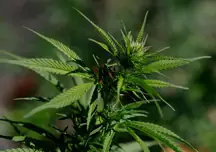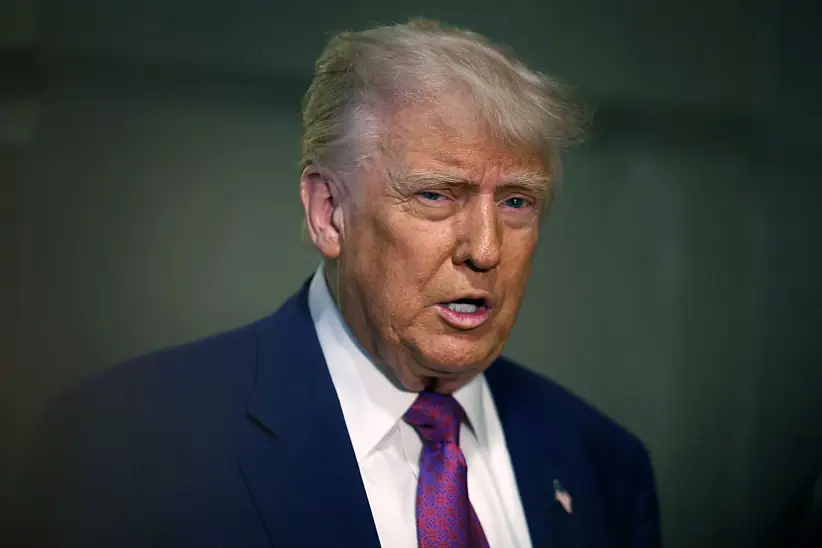Here’s what you need to know about THC as President Donald Trump considers making a major change to marijuana laws.
Donald Trump is considering making a law change. Credit: Tasos Katopodis / Getty
As previously reported, President Donald Trump announced on Monday (August 11) that his administration is “looking at” reclassifying marijuana, which could significantly shift the federal government’s stance on the drug.
“We’re looking at reclassification, and we’ll make a determination over the next – I would say, over the next few weeks, and that determination hopefully will be the right one. It’s a very complicated subject,” he said.
The 79-year-old explained that while this may pave the way for pharmaceutical companies to become more involved in the marijuana industry, the issue is still polarizing.
“I’ve heard great things having to do with medical and bad things having to do with just about everything else,” he continued, adding: “Some people like it, some people hate it. Some people hate the whole concept of marijuana.”
Marijuana is currently classified as a Schedule I drug under federal law – this means that it is considered highly dangerous, addictive, and without accepted medical use.
This designation, which has been in place since the Controlled Substances Act of 1970, stands in contrast to the widespread legalization of marijuana for medicinal or recreational use in 45 states.
A reclassification to Schedule III, which was proposed by the Biden administration in 2024 and has been under review, would not legalize recreational marijuana but would reduce criminal penalties and open the door for more research.
Additionally, it could provide tax breaks for cannabis companies and allow for pharmaceutical involvement in the industry where marijuana is legal.

While discussions about marijuana policy have been ongoing for years, one of the most pressing aspects of the debate is the impact of tetrahydrocannabinol (THC), the main psychoactive compound in cannabis.
Health experts have long debated the potential benefits and risks of THC, especially as research into its effects on the human body continues to evolve.
According to Yahoo, THC is the compound in cannabis that causes the “high” associated with marijuana use. While cannabis is often used for medicinal purposes, including pain management, its effectiveness remains a topic of ongoing research.
A 2023 meta-analysis of studies discovered that THC can help manage pain for individuals with certain health conditions, though experts emphasize that more research is needed to fully understand the long-term effects and potential risks of cannabis use.
There is still much uncertainty surrounding the health impacts of the compound, particularly when it comes to the safest products for consumers.
Experts, such as Gregory Tung, an associate professor at the Colorado School of Public Health, have advised people to use it with caution. He suggests that products with lower THC concentrations or consuming smaller amounts in general are “relatively less risky.”
However, Tung notes that smoking marijuana can be harmful due to the inhalation of combusted materials.
Edibles, while avoiding the dangers of smoking, are metabolized more slowly, making it harder to regulate dosage. Concentrates, often consumed via vaping, tend to have the highest THC levels and are considered the most dangerous by experts due to the potential for addiction and negative psychological effects such as anxiety and paranoia.
Young people and pregnant individuals are urged to avoid cannabis entirely, as they are particularly vulnerable to its harmful effects.

While Trump’s decision to change marijuana’s classification is still pending, the conversation around THC continues to evolve.
As research into cannabis’s health effects deepens and marijuana legalization spreads across the US, it’s clear that the debate will remain a key issue in both public health and policy for years to come.









